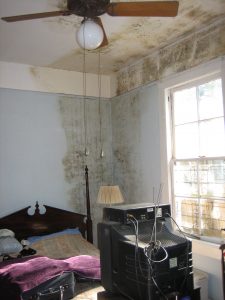Can house mould affect my Health
Can mould affect your health? Watch the video below and then see the the permanent solution to removing mould. Mould happens to be a fungus, which is present in almost any place you look at. They may be purple, green, orange, white, or black. They usually grow on dead trees, plants, and leaves outdoors. They reproduce using lightweight tiny airborne spores and thrive wherever they can find moisture. You’re probably in contact with Mould almost every single day.
While Mould spores tend to be harmless in small quantities, they start growing at an exponential rate when they come across damp spots in a house. Once Mould has started growing in your house, they release huge quantities of spores that people in the surroundings wind up inhaling. If you are sensitive to mold and accidentally inhale spores in large quantities, you may start experiencing a variety of health issues.
Where do Moulds Grow?
Your furniture, carpet, appliances, floors, walls are all potential Mould infestation sites. However, the biggest factor that affects the growth of mold is moisture – so they appear the most in damp locations like crawl spaces, basements, laundry rooms, kitchens, and bathrooms.
Which people are most sensitive to Mould infestations?
Some people may be more sensitive to Mould infestations compared to others, including:
- People with weak immune systems, such as chemotherapy patients
- People with distressed respiratory systems like asthma and allergies
- People with skin problems like eczema
- Elderly people
- Children and babies.
Such people should stay away from places that may have mould infestations.
What Health Issues Does Mould Cause?
Mould generate allergens (which are substances that cause allergic reactions), toxic substances, and irritants. Touching or inhaling deadly mold spores can cause allergic reactions like skin rash, red eyes, runny nose, and sneezing. Mould can also trigger asthma attacks in people who suffer from the condition.
People with Mould infestations in their house are also at greater risk of contracting respiratory problems and infections, asthma or allergies. Staying in close proximity to a mould infestation may also affect your immune system adversely.
What are the best ways to control Mould ?
It is nearly impossible to eliminate Mould spores from your house. However, as mold spores aren’t capable of growing in the absence of moisture, eliminating moisture patches from your house is actually the best method for eliminating or preventing mold growth. If you have mould infestations ruining your house right now, it is important to clean up & fix the issue that is causing the dampness. People who clean the Mould but do not fix the underlying problem may not see any significant improvement in their condition.
Here are some tips that can help you reduce moisture levels throughout your house, which can help you fight Mould infestations:
- Use an air conditioner or dehumidifier if you live in humid, hot climates, for reducing the air’s moisture content.
- Ensure your indoor humidity levels remain below 60%. Measure your home’s relative humidity using a hygrometer, which can be purchased from a hardware store
- Ensure your AC drip pans are completely clean. Your drain lines must also be maintained properly without any obstructions.
- Utilize exhaust fans for driving away moisture content from your house whenever you clean, wash dishes or cook.
Turn off appliances if you observe moisture content on the windows & other surfaces
We have the solution to permanently remove mould from your house for good…… read more
